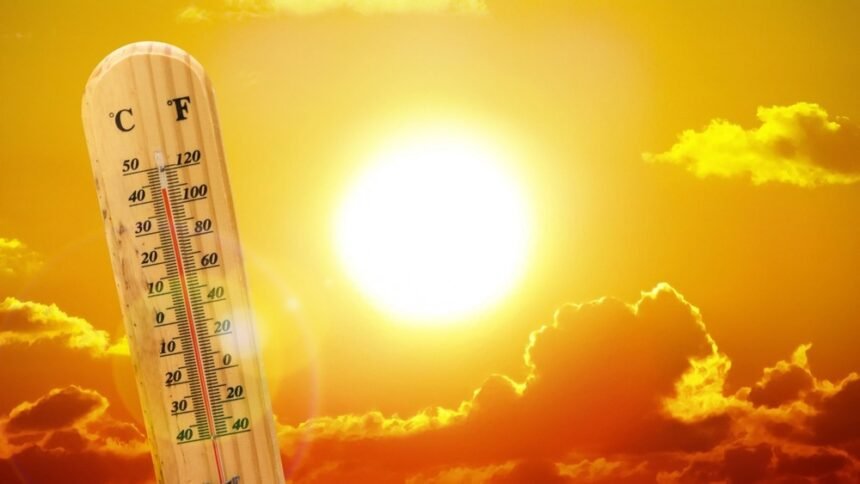The story so far: Come summer, we are used to seeing heat alerts from the India Meteorological Department (IMD) for various parts of India. This year, these alerts began in February itself. Parts of the northeast and western India have already reported appreciably warm temperatures (3.1-5 degrees Celsius above normal) before the start of summer. The IMD has also predicted an increase in the maximum temperature and the frequency of heatwave conditions in the forthcoming days over eastern and southern India, raising the question of India’s readiness to face this hazard.
What is a heatwave?
According to the IMD, the definition of a heatwave depends on the physiography of regions. The IMD will declare a heatwave if the maximum temperature recorded at a station is 40 degrees Celsius or more in the plains, 37 degrees Celsius or more in the coast, and 30 degrees Celsius or more in the hills.
A heatwave’s severity is determined by its departure from normal temperature. There is a ‘normal heatwave’ when the departure is by 4.5-6.4 degrees Celsius and a ‘severe heatwave’ if the departure is greater.

Heatwave declaration could also be based on actual maximum temperature: a ‘heatwave’ is when this figure is greater than 45 degrees Celsius and a ‘severe heatwave’ when greater than 47 degrees Celsius.
The IMD takes the latter two ‘routes’ only when at least two stations in a meteorological subdivision report such a high maximum or when at least one station has recorded a corresponding departure from the normal for at least two consecutive days.
How are we tackling heatwaves?
With the severity and frequency of heatwaves increasing across the country, governments at various levels — State, district, and city — have prepared heat action plans (HAPs).

HAPs aim to increase preparedness and lower the adverse impacts of extreme heat by outlining strategies and measures to prepare for, address, and recover from heatwaves.
The National Disaster Management Authority and IMD are reported to be working with 23 States to develop HAPs. There is no centralised database on HAPs, but at least 23 HAPs exist at the State and city level, with a few States, such as Odisha and Maharashtra, laying out district-level HAPs.
HAPs in India follow a general pattern. They provide a snapshot of regions’ heat profile, including information on the number of past heatwave events, yearly trends in the summer maximum temperature, land surface temperature, and so on, followed by a vulnerability assessment which maps out regions that require immediate attention and a response plan.
This plan presents recommendations for mitigating and addressing heatwave impacts before, during, and after a heatwave and outlines the roles and responsibilities of various line departments, such as the disaster management authority, labour department, and police.
What do the HAPs recommend?
HAPs typically suggest a combination of measures such as using forecasts and early warning systems to alert the public and relevant authorities about heatwaves, educating the public through campaigns that provide information on risks associated with heatwaves, building heat shelters and cooling centres, and providing clean drinking water to avoid dehydration.null

HAPs provide directives for hospitals to be well equipped with supplies and an adequate number of trained healthcare workers to recognise and treat a large influx of patients with heat-related illnesses.
HAPs also suggest long-term measures such as adopting urban planning strategies that promote tree planting, using heat-resistant building materials to reduce urban heat island effect, and using cool roofing technologies to reduce solar absorption, thereby decreasing indoor temperatures.
In addition, HAPs push for effective coordination among stakeholders, including government agencies, healthcare providers, community organisations, and emergency services.
(Press the bell 🔔 Icon, for all latest updates)






